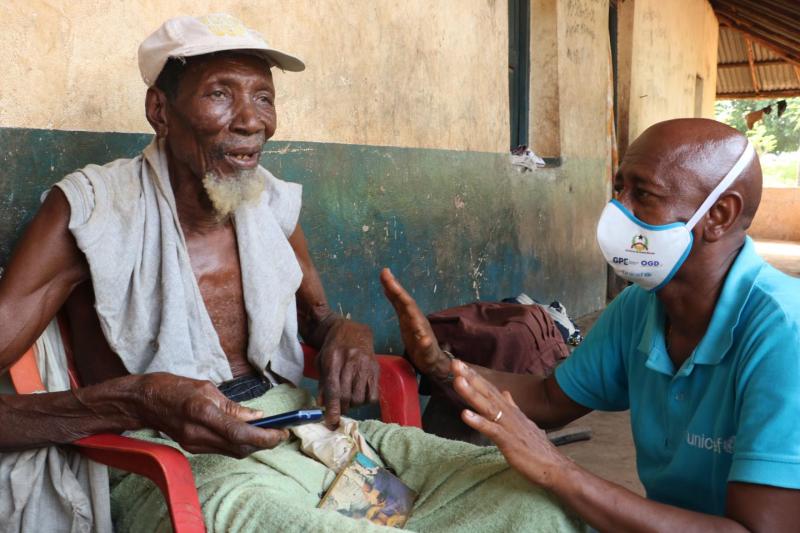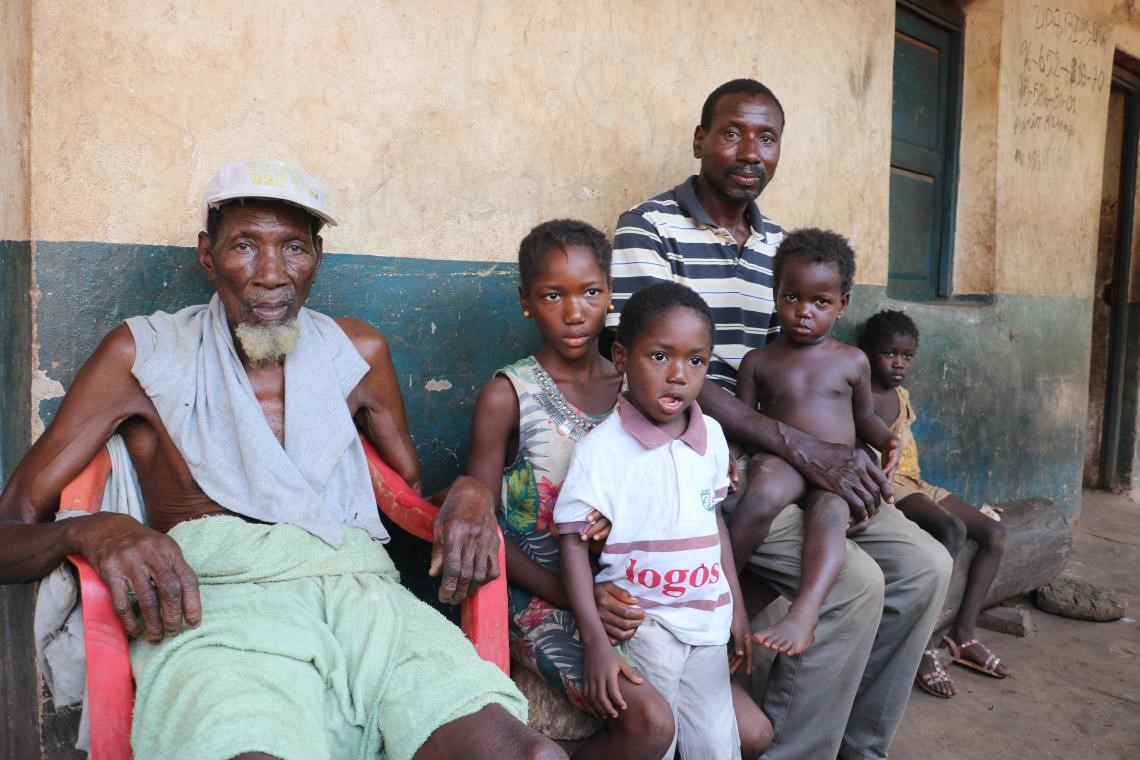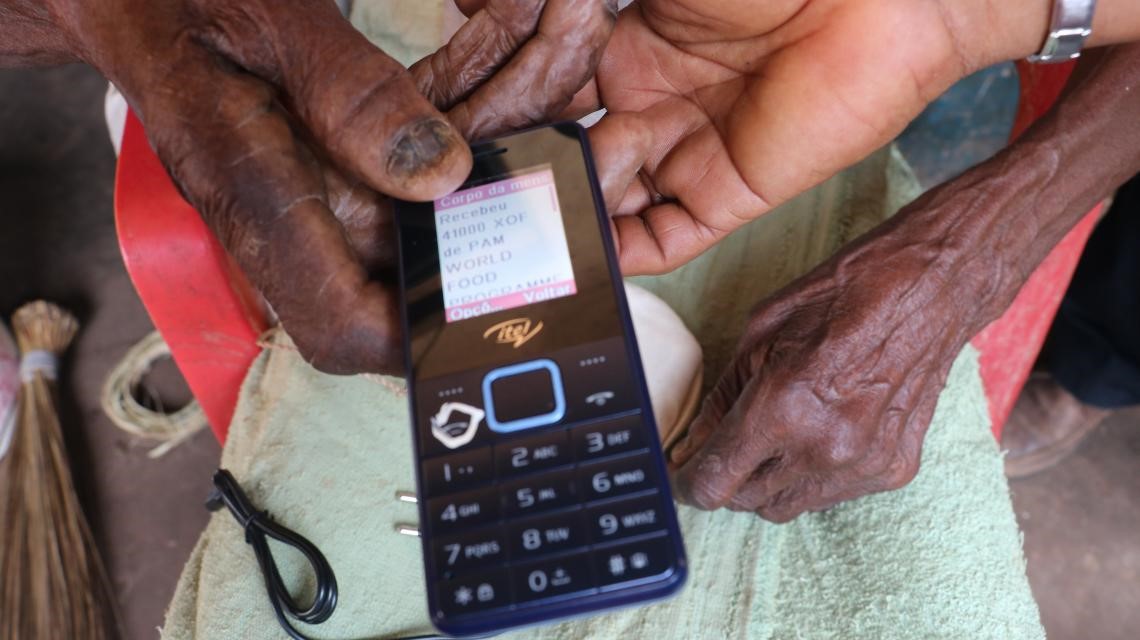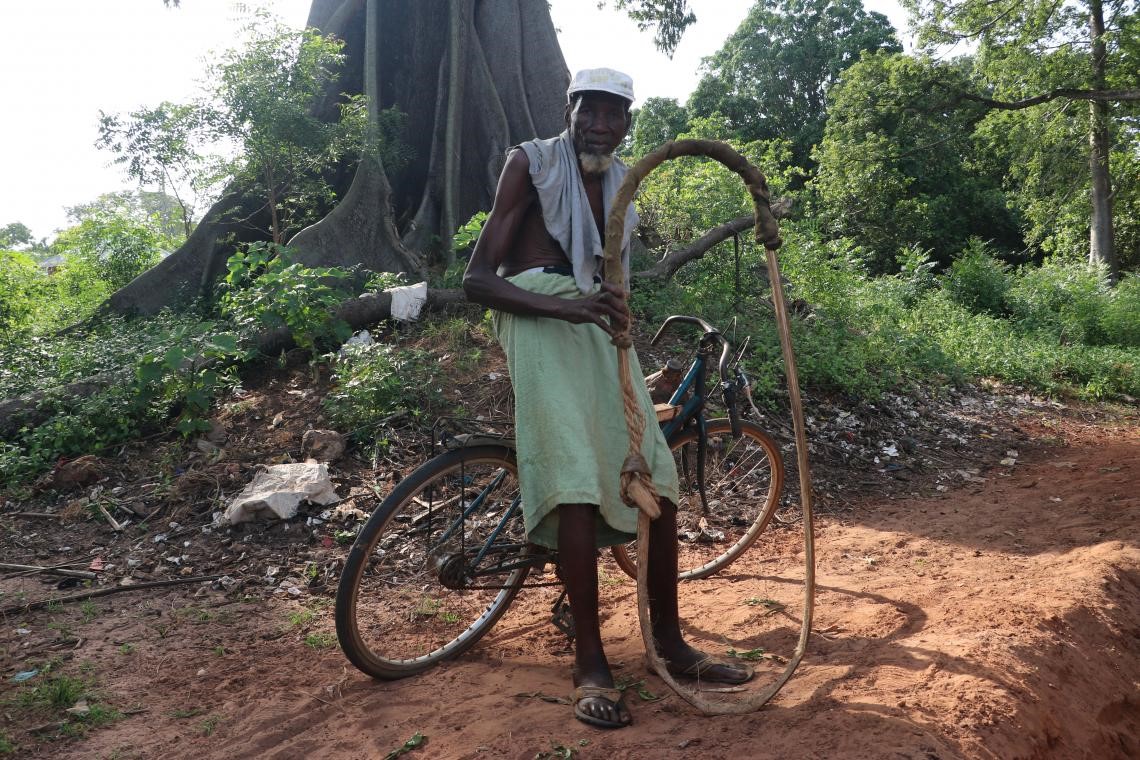

Cash transfers through mobile money has provided 1,600 households with a lifeline during the lockdown. With schools being closed, additional stressors were placed on children’s principal caregivers.
Guinea Bissau, 18 May 2021.
Azevedo Gomes belongs to a village community inhabited by close to 500 people, some thirty kilometres south of the town of Cacheu. At 98 years of age, he remains firm and grows fruits and tubers in his farm and even recalls having been a seasonal migrant to The Gambia, where he worked as a stevedore. But with the onset of COVID-19 in Guinea-Bissau, Gomes, as many other agricultural workers in the country, has been negatively affected by mitigation measures put in place to prevent further transmission of the disease.
The state of emergency declared on March 27th, 2020, meant that borders and schools were closed, markets, where crops grown by farmers like Gomes would have been sold, faced drastic restrictions and movement across the different regions was limited. The introduction of COVID-19 in the country also coincided with the cashew campaign, which proved to be unsuccessful as global demand fell.
Gomes, and other vulnerable Bissau-Guineans, who depended on the revenue from cashews and the sale of other produce both nationally and internationally, were faced with increasing threats to their livelihoods and food insecurity.
In a bid to alleviate some of the pandemic’s worst consequences on Guinea-Bissau’s most vulnerable populations, UNICEF, supported by the Multi-Partner Trust Fund for COVID-19 and in coordination with WFP and UNDP, intervened to ensure that these households would have access to social and economic protection mechanisms, food security, and even support for cashew crop growers. One of the villages identified for the programme was Bianga, where Azevedo Gomes resides.

Recently awakened from his nap, he welcomed the programme implementation team smiling, and inquiring about where they travelled from. Overjoyed at receiving the cash transfer, equivalent to two thirds of the national minimum wage, Gomes expressed that it has helped to improve his diet, “I buy fish every day. I like fish, it’s my favourite”. He added that the fund also helped him to pay bills, including the school fees for his great-grandchildren.

His is one of 1,587 households that was supported across the country through the distribution of cash transfers. The programme was implemented by providing identified households with phones and SIM cards to allow families to access funds through mobile money. Mobile phones were also critical as they were used to conduct surveys to inform the baseline and end line data. Access to phones has also facilitated the feedback mechanism between UNICEF and the beneficiaries to enable them to provide feedback on the program and present claims. The program has also assessed its impact through measurements like the dietary diversity of women and children, demographics that are disproportionately affected by the pandemic. Of the households identified for the cash transfer programme, 66 percent of them were headed by women and the vast majority had 5 or more dependents. With schools being closed under lockdown measures, additional stressors were placed on children’s principal caregivers.

He hopes to pass it down to the younger generations just as he hopes to learn with them. Gomes is renewed with each new day, despite the precarities of the village that is isolated by treacherous roads and the hardship in the times of the pandemic. He is grateful to find a bit of support for his subsistence, so that he can continue surviving the worst consequences of COVID-19 and pass on his wisdom wherever he can.
Story by Vinicius Carvalho, originally published on UNICEF.org